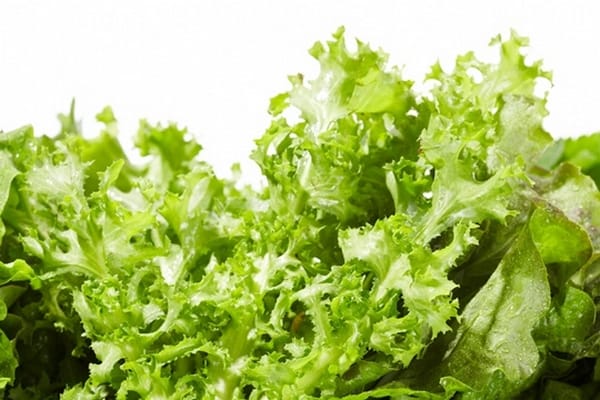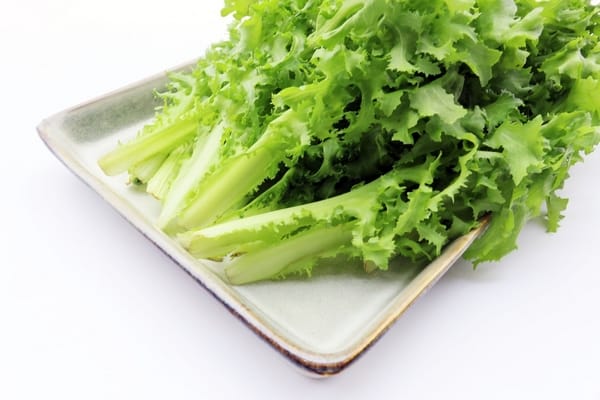Chicory benefits, side effects, diet method
Chicory Nutrition

| Chicory (100g) Nutrition | |||
| Carbohydrate | Protein | Fat | Calories |
| 4.5g | 1.2g | 0.1g | 22kcal |
| Main Nutrition | Dietary fiber, inulin, vitamin A | ||
| Main Benefits | Promotes digestive health and prevents diabetes and vascular diseases | ||
| Side Effects | Pregnant women and patients with gallstones should not consume | ||
Chicory is a leaf vegetable and its origin is Northern Europe. Chicory grows between 1m and 1.5m, and the flowers can be white or red, but most are light blue and bloom between July and September. Most chicory leaves are eaten, and the leaves are often eaten as salads, but they are also used in seasoned foods or ssam (ssams), and can also be boiled and added to various dishes. The taste has a slightly bitter taste.
Chicory Benefits

1. Improvement Of Diabetes
Chicory contains a large amount of dietary fiber. Dietary fiber suppresses the rise of blood sugar levels and reduces glucose absorption, which helps prevent diabetes and improve symptoms in diabetic patients. In addition, chicory contains inulin, a magnesium-containing ingredient, and despite inulin, it has the function of treating arthritis. In addition, chicory contains inulin, a magnesium-containing ingredient, and despite inulin, it has the function of treating arthritis.
2. Improves Digestive Function And Gut Health
Chicory contains an ingredient called intivin. Intivin is the cause of the bitter taste, and this ingredient protects the stomach mucosa and promotes digestion, helping stomach health. Inulin is also effective in improving digestive problems such as acid reflux disease and indigestion. Additionally, dietary fiber increases beneficial bacteria in the intestines and improves constipation, thereby contributing to intestinal health.
3. Dementia prevention
Chicory contains a component called chicoric acid. This ingredient helps prevent the formation of toxic clumps in the brain that destroy nerve cells. If these toxic clumps form in the brain, they affect the brain’s ability to function properly, causing brain disease. However, chicoric acid prevents this phenomenon, reduces memory impairment, which is an early symptom of dementia, and helps prevent dementia by improving brain health.
4. Blood vessel health and prevention of cardiovascular disease
Chicory also helps with blood vessel health. The bitter-tasting intivin ingredient helps maintain blood vessel health. It is also effective in dilating blood vessels and has antioxidant properties that clean the blood vessels in our body, helping prevent and improve cardiovascular diseases such as high blood pressure. It is also effective in lowering the total cholesterol content in the blood by helping to excrete bad cholesterol from the body and preventing reabsorption of cholesterol.
5. Vision Health
The high amounts of vitamin A contained in chicory can improve vision and prevent eye diseases such as cataracts and glaucoma. It can also relieve night blindness.
How to make chicory diet smoothie
- Chop the chicory and kiwi into small pieces and blend them in a blender with a cup of water.
- Add honey or stevia and, if you are constipated, add 1-2 prunes.
- Consuming a smoothie in the morning can increase the effectiveness of your diet.
Side Effect
- Excessive consumption of chicory during pregnancy may cause miscarriage or abortion, so caution is advised.
- Chicory promotes bile secretion, so patients with cholelithiasis should be careful when consuming chicory.
- Some people may be allergic to chrysanthemums. If you are allergic, your face may swell or allergic rhinitis may occur, so you should check for allergies before consumption.
- Due to its rich dietary fiber, it may cause stomachache and farting when consumed in the morning.
References
💠PharmEasy: Chicory: Uses, Benefits
💠Nourish WebMD: Are There Health Benefits of Chicory?